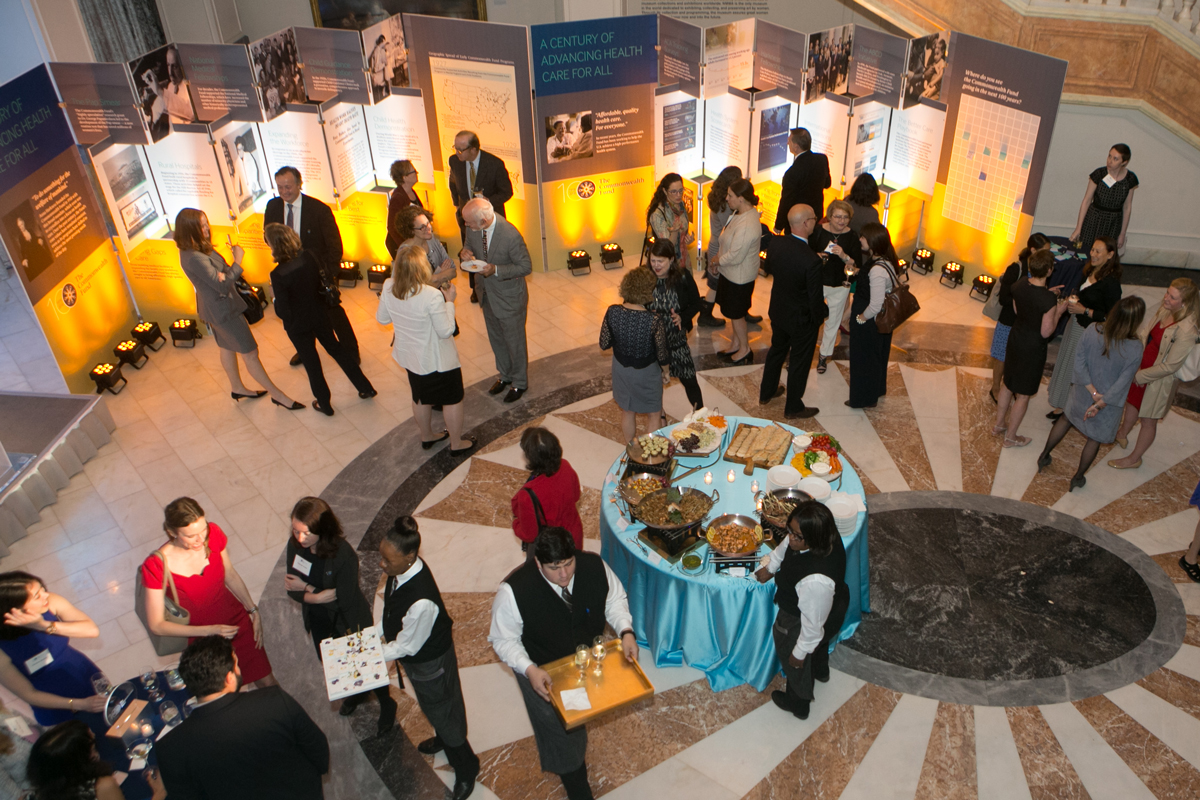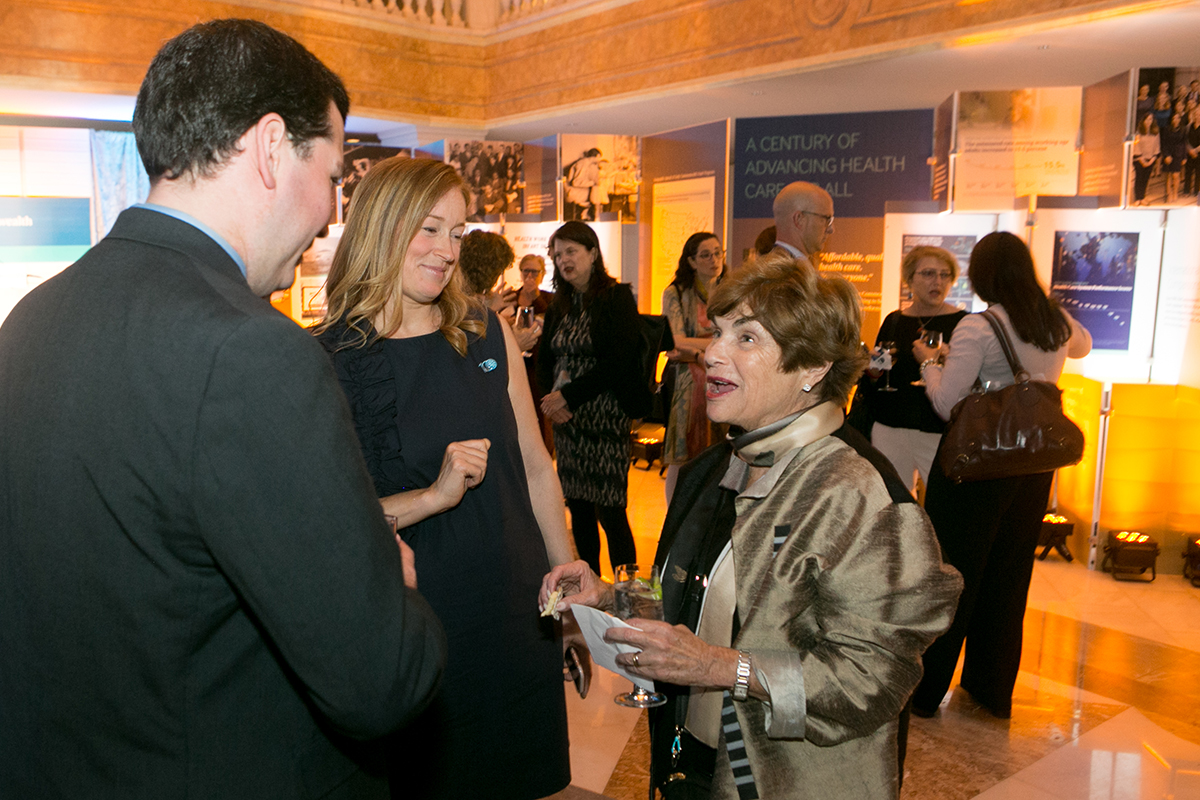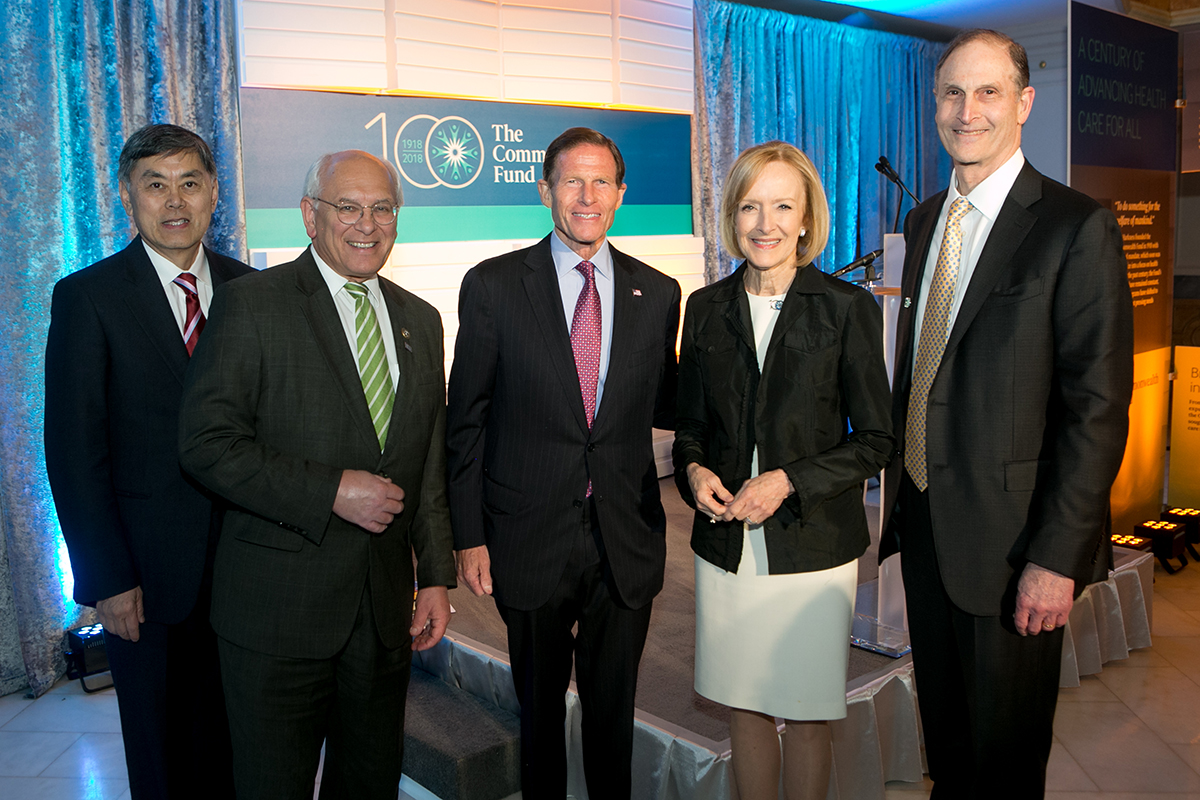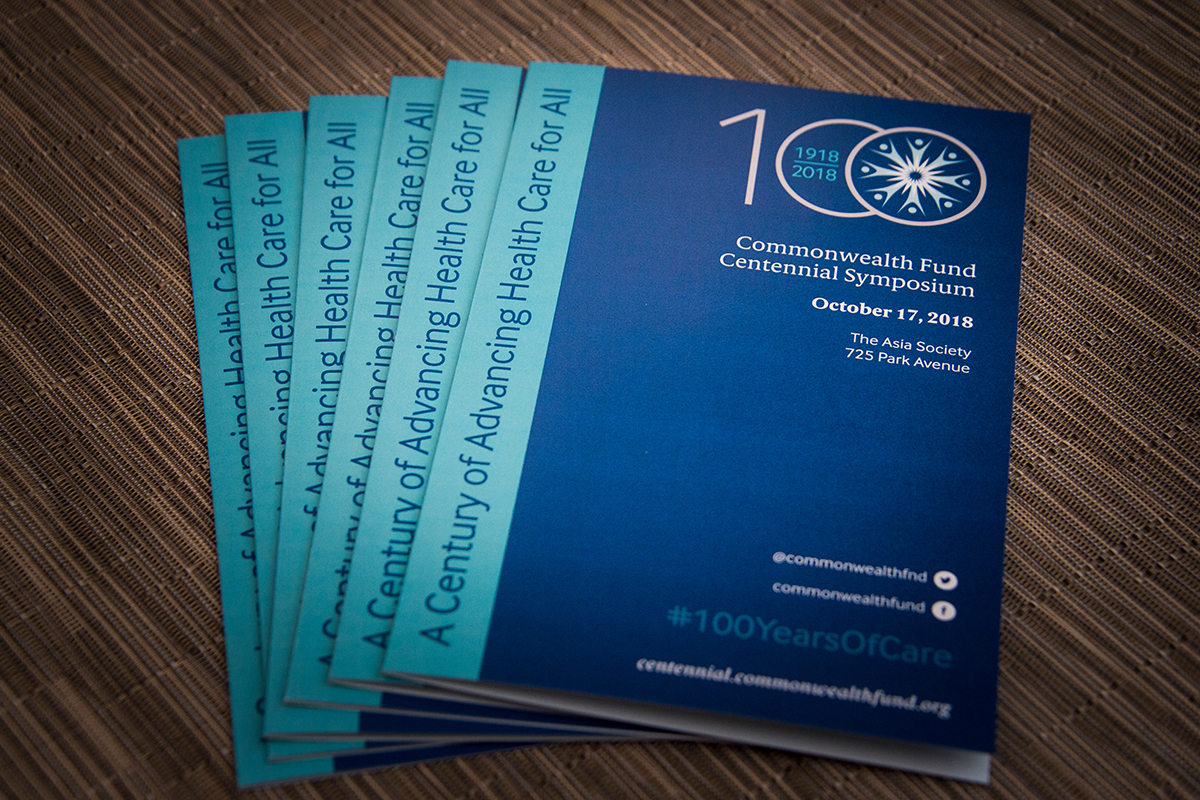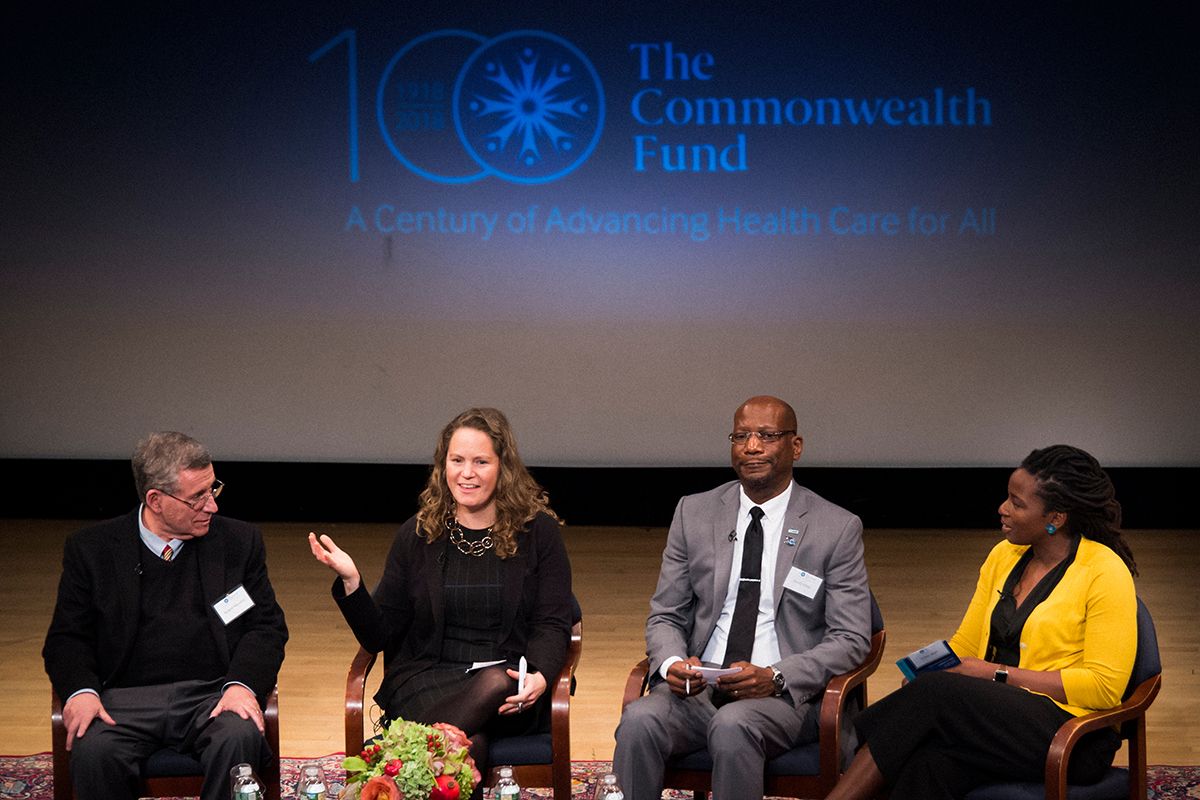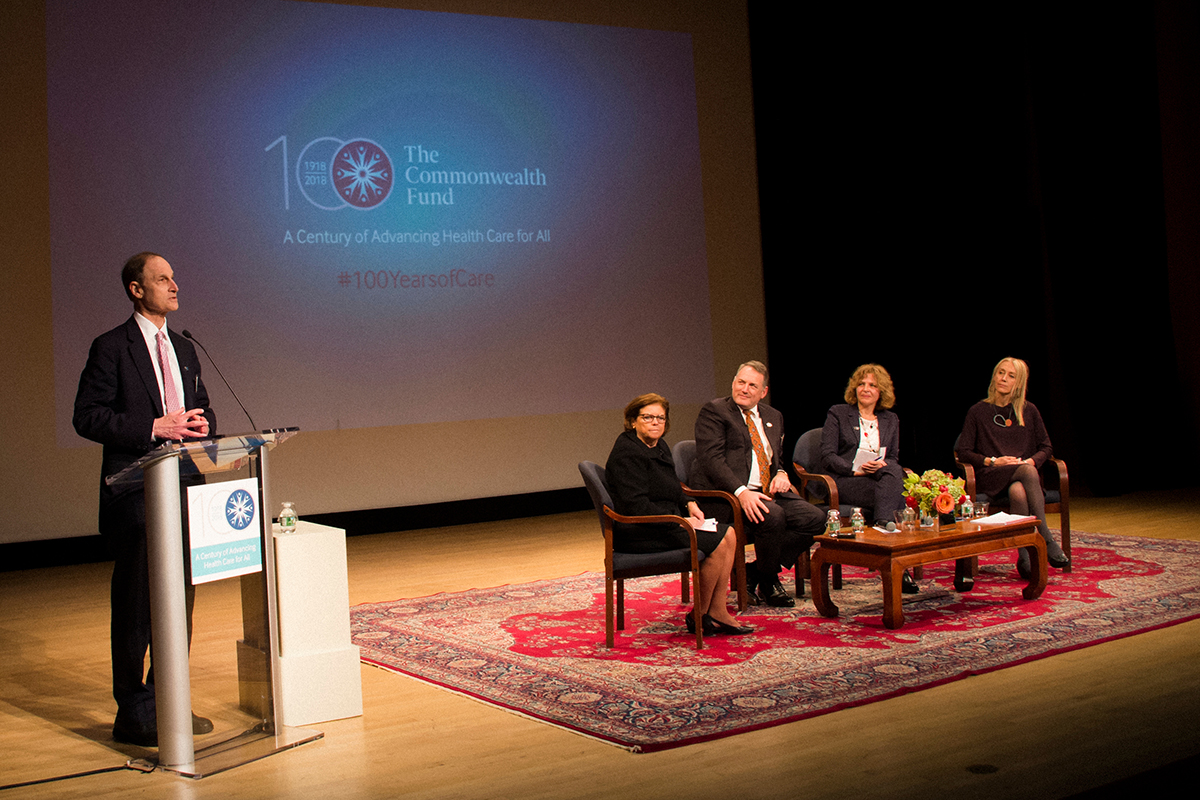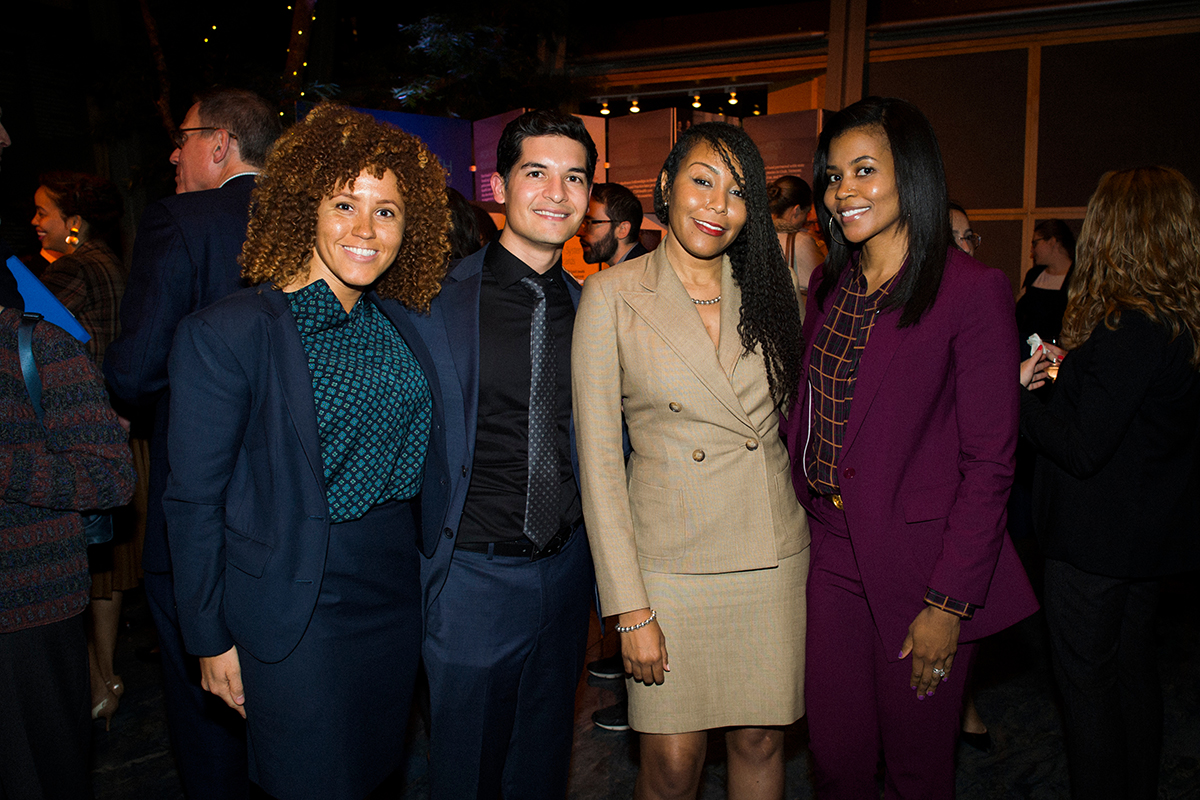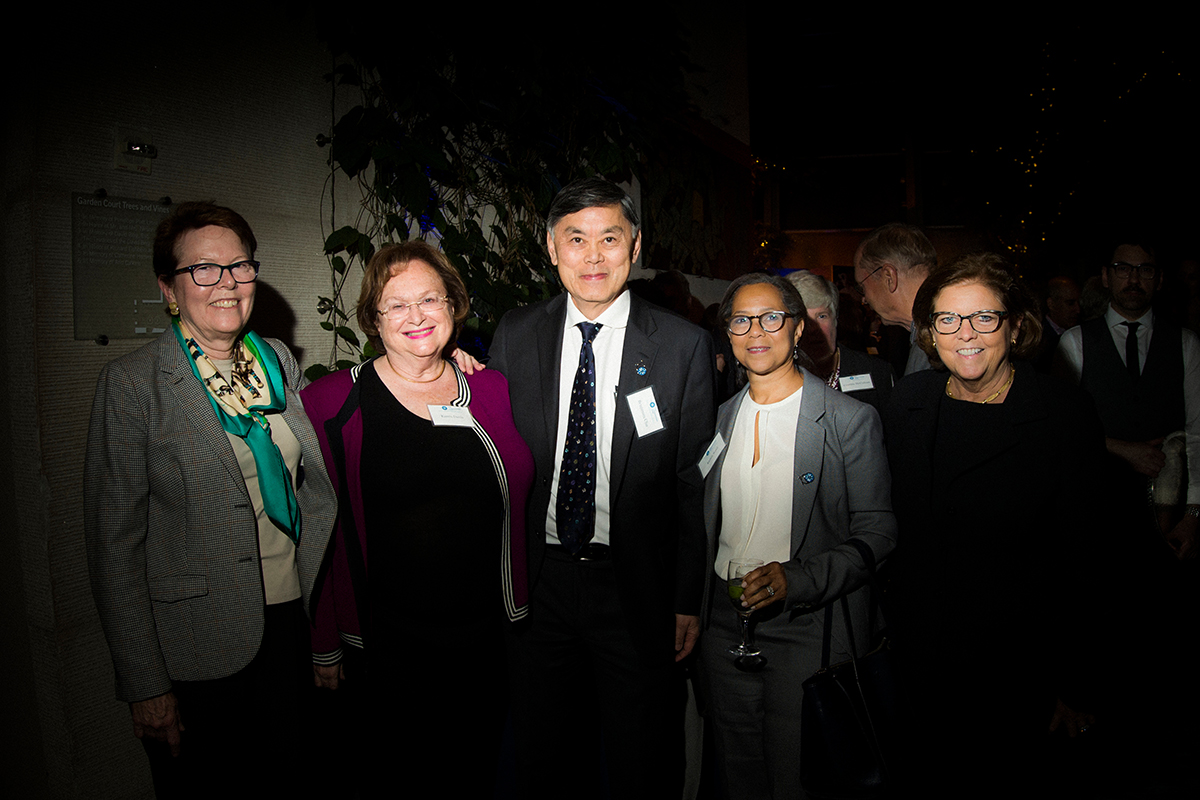Message From the President
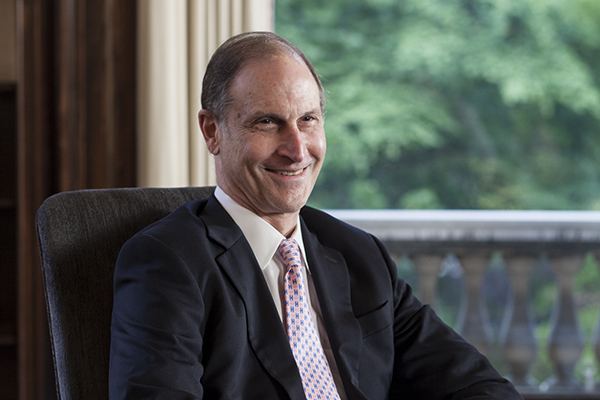
DAVID BLUMENTHAL, M.D.
President, The Commonwealth FundCelebrating the Commonwealth Fund’s centennial in 2018 was certainly one of the highlights of my own career. It was a reminder that, as founders Anna and Edward Harkness always believed, a philanthropy staffed with talented and experienced people, dedicated to making a difference, and open to experimenting with fresh ideas and partnerships can have a real impact on the health and welfare of Americans. But it was also a reminder that it can take time – often decades or more – to realize the impact of those efforts.
As I write, we are on the starting line of the 2020 presidential campaign. To be sure, the Commonwealth Fund will play its traditional role during the coming months to inform public discussion – for example, by analyzing how the candidates’ health care proposals would affect health care access, quality, and cost for all Americans.
But we also find ourselves at a historic juncture in the national conversation about what kind of health care system we want. It’s a discussion the Commonwealth Fund is well positioned to support.
It is well known that every other wealthy country in the world has accomplished what the U.S. has not: providing health care coverage for all its people, at an affordable cost. For the first time, major-party presidential candidates are looking to ideas from some of those other countries to help the U.S. achieve universal coverage as well.
Since its earliest days, the Commonwealth Fund has been working to further the international exchange of ideas; we launched our first international fellowships in 1925. For the past two decades, that work has focused exclusively on comparative health policy. Each year, with partners in 10 other countries, we conduct a survey that illuminates differences in health system performance across these nations. Every three years, we publish our Mirror, Mirror report of international rankings, one of the most frequently cited sources of health system comparisons. The Fund also sponsors an annual international symposium bringing together health ministers and other leaders from around the globe, and we publish detailed profiles of other countries’ health systems.
And then there are our Harkness Fellowships, which send outstanding health professionals from eight countries to the U.S. to learn from health care leaders here, conduct additional research, and share lessons from their home countries. The reconstituted Harkness program celebrated its 20th anniversary in 2018, a year we partnered with the Association of Health Care Journalists to support an international journalism fellowship for veteran U.S. reporters seeking to uncover lessons in health care from other countries.
But while the Commonwealth Fund has been engaged in international work for close to a century, and earnestly pursuing comparative health system work for two decades, this type of research is only now gaining salience in the policy debate. It’s evidence that patience and persistence can be a virtue in philanthropy.
The Fund’s international work has shown, for instance, that there are many paths to universal coverage and to a high-performing health system. Whether voters favor universal health insurance or not, everyone should understand the full range of options as the national debate proceeds. And thanks to the efforts of many over the past several decades, the Fund will be there to inform that debate.
A few examples of our other work in 2018 that we’re particularly proud of:
- We conducted our latest Biennial Heath Insurance Survey, as we have in alternating years since 2003. It found that a higher share of U.S. adults are "underinsured," meaning they have some coverage but also have high deductibles and out-of-pocket medical expenses relative to their income.
- We released the 2018 Scorecard on State Health System Performance, which found that the combined death rate from suicide, alcohol, opioids, and other drugs increased by 50 percent nationwide between 2005 and 2016. These deaths rose across all states, with rates doubling or more in Delaware, Ohio, New Hampshire, New York, and West Virginia.
- As part of our blog series Listening to Low-Income Patients and Their Physicians, Commonwealth Fund researchers interviewed primary care doctors in rural communities to learn about the distinct challenges they and their patients face, from geographic isolation and an absence of economic opportunity to limited access to specialty care.
- In partnership with the New York Times and Harvard T.H. Chan School of Public Health, we released the first in a new survey series called Health Care in America. The inaugural survey focused on the experiences of seriously ill people in the U.S.
- Our new podcast, The Dose, which premiered last October, is getting listeners up to date on the latest research, sharing patients’ stories about their interactions with the health care system, and exploring innovations that could make life easier for patients, family, and caregivers. Episodes in 2018 explored the truth about wait times for health care in Canada, what it means to be sick in America, and women’s health and health care.
Winston Churchill, to paraphrase a biographer, saw studying history as a key to making it. In 2018, the Commonwealth Fund’s centennial gave us the opportunity to think a lot about history and about the common threads that have defined the foundation’s work for 100 years and that run deeply through the debate over health care in this country.
As the never-ending battle over Obamacare makes clear, few issues are more politically fraught in the U.S. than health care. The 2020 election and its aftermath will no doubt amplify this discussion. We at the Commonwealth Fund look forward to providing information that will help fuel — and, hopefully, elevate — that conversation, all with an eye to driving the nation toward a health system that provides affordable, high-quality health care for all its people.


